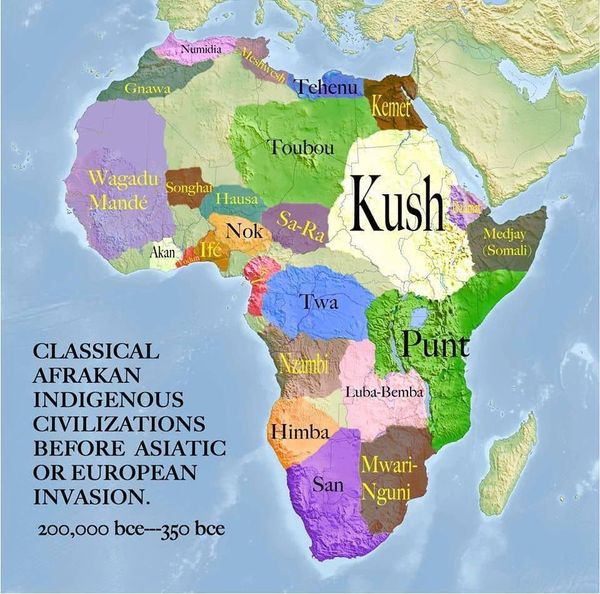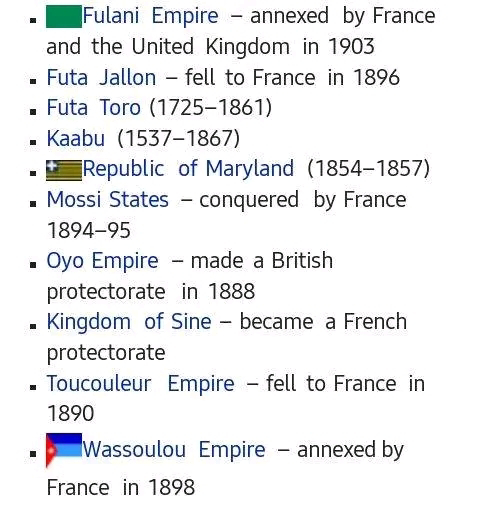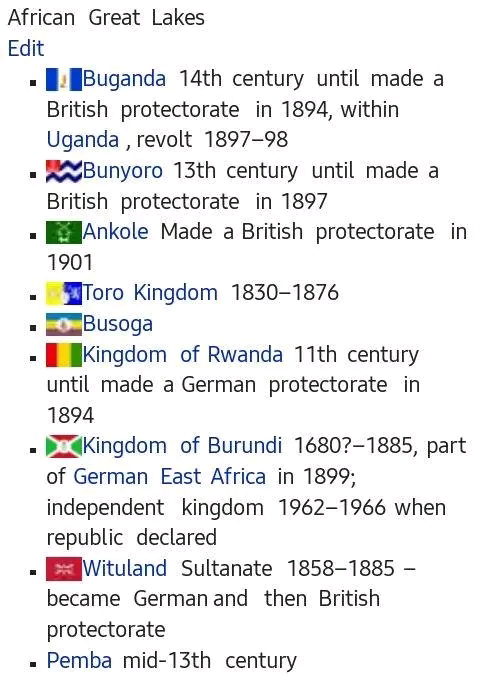Every Kwatuan state:
Acholi
Adal Sultānat
Agikuyu
Al-Kufrah
Al-Magrib
Asanteman
As-Sultānat As-Zarqa
Attakhoe
Aussa Sultānat
Azande
Bagirimi Sultānat
Baherero
Bahr El Ghazal
Bakomo
Balozi
Bamum
Banyarwanda
Barqah Sultānat
Basongye
Benin
Biaka
Bobangi
Botswana
Brakna Imārat
Bubi
Buganga
Bula
Chinet
Chinguetti
Chokwe
Cochokhoe
Dahomey
Damagaram Sultānat
Dan
Dār Banda
Dār Fertit
Dār Fur
Dār Runga
Eswatini
Ewondo
Fazzan Sultānat
Fouta Jalon
Fouta Tooro
Gaza
Gbaya
Geledi Sultānat
Gonakhoe
Gonja
Guro
Hafsid Khilāfat
Hamasien
Hesse Khoe
Hiraab Sultānat
Hlubiland
Ixam San
Kabadougou
Kano Imārat
Katanga
Katsina Imārat
Kel Ahaggar
Kel Aïr
Kel Ajjer
Kel Gress
Khomani San
Khwe
Komori
Kondo
Kong
Kongo
Koya
Kraoh
Kuba
Kung
Kurdufān
Kwanhama
Lesotho
Maasai
Majeerteen Sultānat
Mandara
Manding
Mangbetu
Mangista Ityop'p'ya
Maravi
Mbini
Merina
Misr Sultānat
Mpofana
Mthwakazi
Namakhoe
Nhlangwini
Nri
Nzakara
Omo Aro
Ovimbundu
Oyo
Pediland
Rundi
Sokoto Khilāfat
Songhay
Swahili
Tadjoura Sultānat
Taqali
Tagant Imārat
Tarābulus Sultānat
Tekna
Tembuland
Tibesti
Trarza Imārat
Ufipa
Ugogo
Uhehe
Ukambani
Unyamwezi
Vakavango
Venda
Waddai Sultānat
Walata
Warsangele Sultānat
Wayao
Wogodogo
Wolof
Wukari
Xaaso
Xhosaland
!Xoo
Yao Sultānat
Zululand







